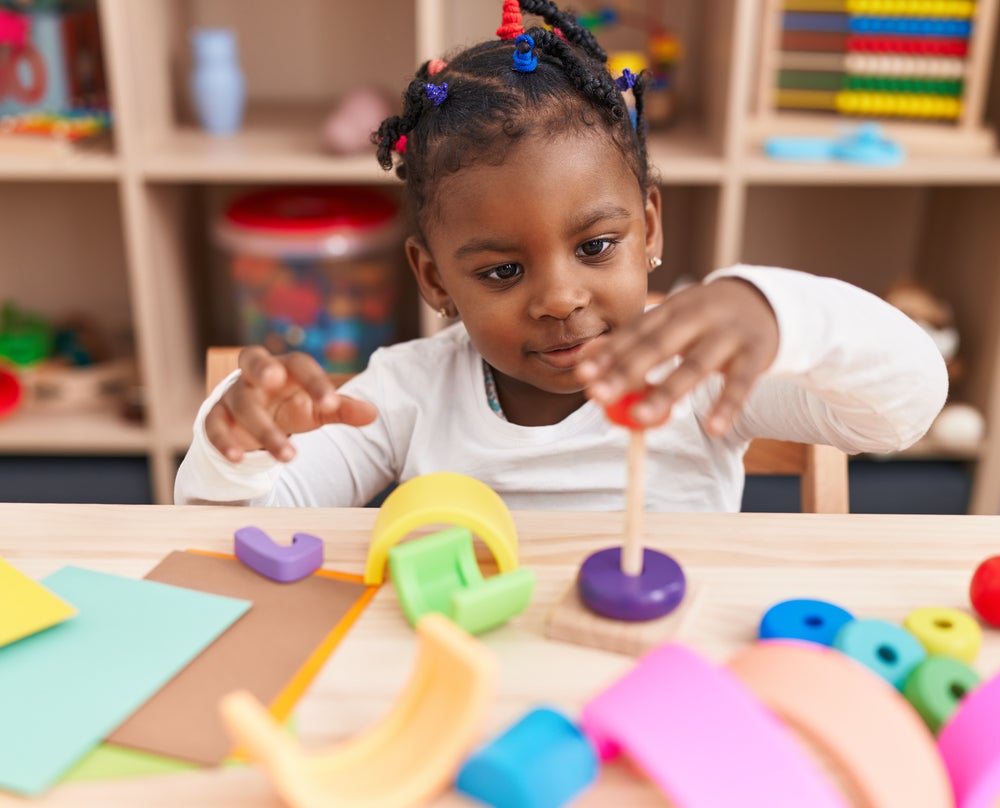

Now that your little one is growing up, you might be thinking about enrolling them in preschool. But before making that exciting decision, you want to make sure it’s the right time for them. That’s where this preschool readiness checklist comes in. While reviewing the list, remember that every child develops at their own pace. It’s OK if your child hasn’t mastered everything yet. Use this checklist as a guide to see where they are now and where they may need extra practice and support.
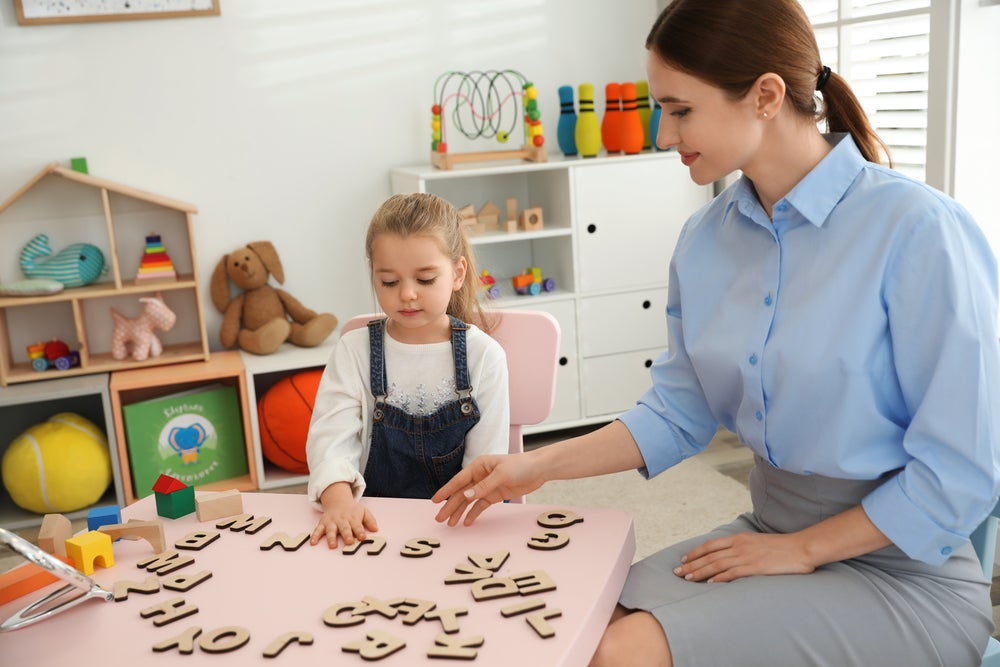
The goal of preschool is to introduce children to essential skills that will set them up for future academic success. You can see how your little one is doing in the pre-academic areas listed below.
These tie into the 5 C’s of the Begin Approach to helping kids thrive in school and life.
Being able to think clearly and rationally is important for understanding new concepts and making connections between ideas.
While preschoolers are still developing their critical thinking skills, here are some signs that they’re on a comfortable path:
Children face many obstacles throughout their academic and personal lives. Teaching them creative problem-solving skills early on can help them navigate these challenges with confidence.
Strong problem solvers can:
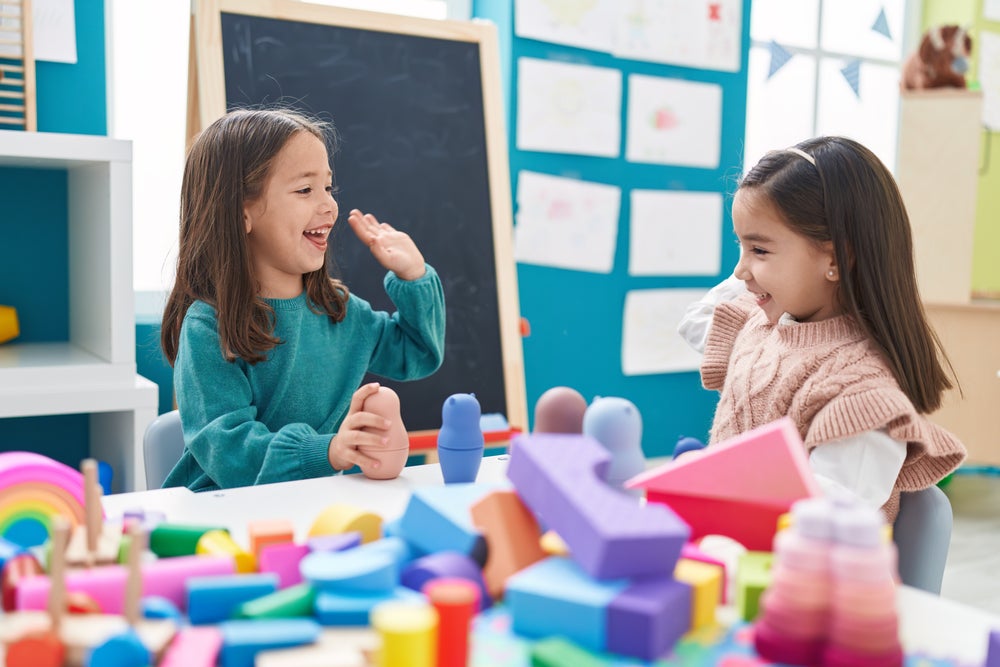
Developing strong communication skills is crucial for preschoolers as they begin forming relationships with others outside their immediate family.
Children with solid communication skills often can:
While most preschoolers aren’t yet ready to read, literacy activities at this age help them build a solid foundation for future success.
Early literacy core skills can include:
At this age, math comprehension is more about recognizing patterns and understanding basic concepts than solving problems. Rest assured that these early math skills will give your child the background knowledge they need to tackle more challenging math later on.
When ready for preschool, your little one could begin to:
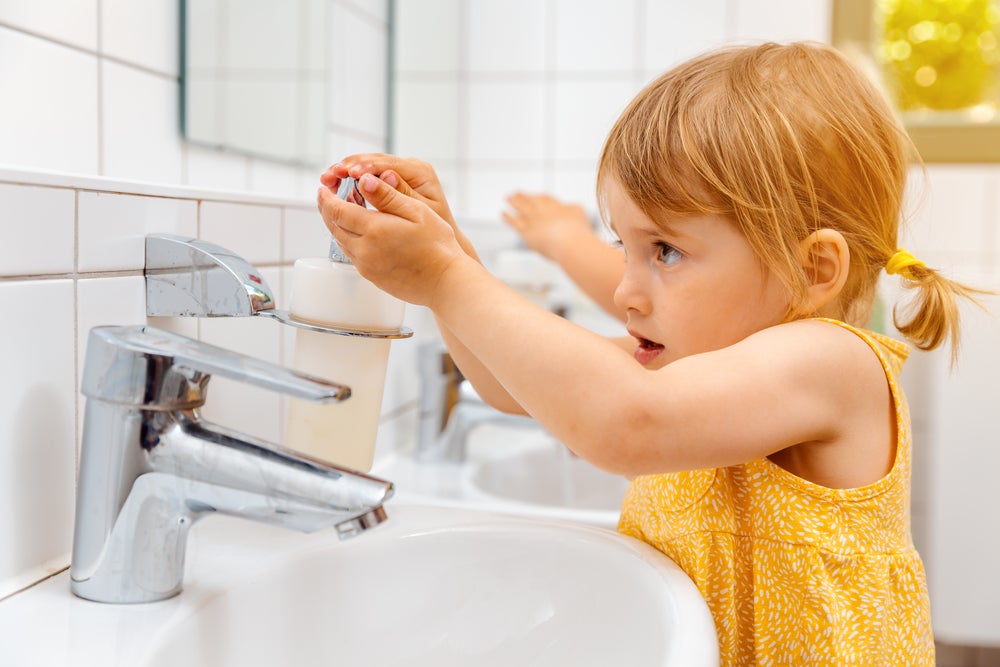
Preschool isn’t just about academics. Your child’s social, emotional, and physical development are equally important.
Let’s look at a preschool readiness checklist for these other areas.
Self-care refers to the ability to take care of oneself and participate in daily tasks independently.
Here are some self-care skills that may indicate your child is ready for preschool:
Children with well-developed fine and gross motor skills have control over their bodies and can perform movements with accuracy and coordination.
Here are some things your child might be asked to do in preschool:
Preschool is often the first time children are away from their parents for an extended period. It may also be their first time interacting with peers in a structured setting.
The skills below help indicate that your child is developing the character they need to handle the emotions and social interactions that come with preschool.

Now that you know what skills your child will need in preschool, let’s look at some simple ways to prepare them for this new experience.
Sharing books with your child can help develop their language skills, attention span, and imagination. Read different types of books together, from picture books to short stories, and encourage your child to ask questions and express their thoughts about the story.
Invite them to participate in imaginary play based on the book you just read. See if they can brainstorm simple costume pieces and props to act out what they think happened next.
As their curiosity about the topic kicks in, they may dive even deeper.
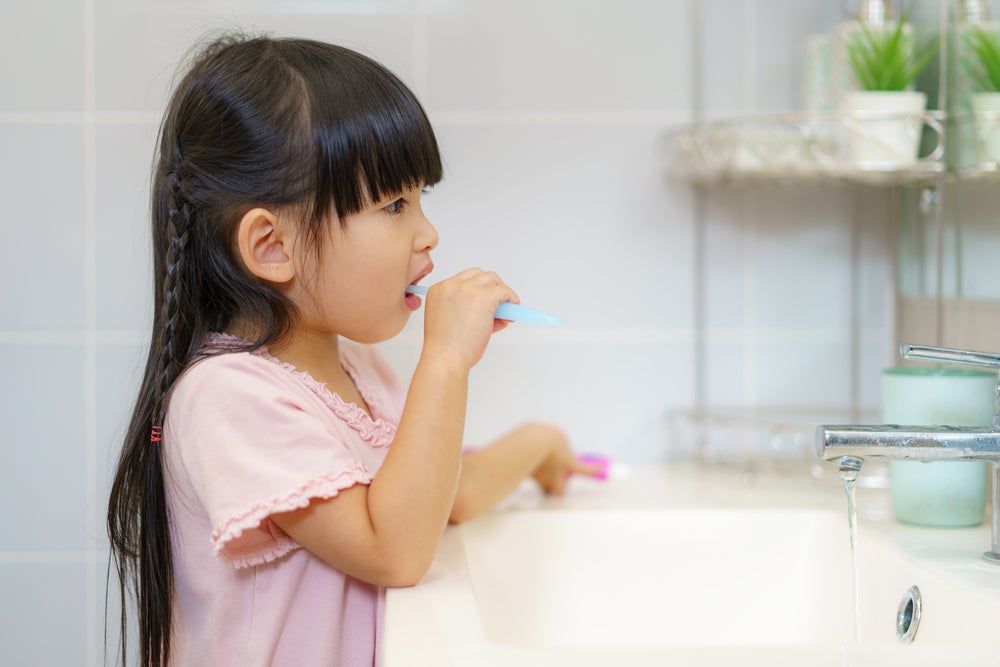
Preschools often follow a more predictable routine compared to a child’s daily life at home. This structure helps children feel more secure and comfortable in their environment.
Consider implementing a similar routine at home to help them get used to this style of time management. Ask them to draw pictures representing regular daily tasks, such as:
Display the pictures in a visible spot, and work together to arrange them in order each morning so your child knows what to expect.
With a classroom full of students, your child’s teacher simply won’t be able to help with every task. The more your child can do on their own, the more comfortable they’ll feel in preschool.
Give them time to try before you rush in to help. Encourage them to put on their shoes and coat, pour their own drink, and use the bathroom independently.
As your child succeeds at each small task, they’ll gain confidence in their abilities.
It’s no secret that children learn through play. Take advantage of this by providing opportunities for your little one to practice specific skills in a fun way.
Here are some ideas:
Role-playing is a great way to help your child understand and navigate social situations in preschool. As they participate, they practice their communication skills and develop the ability to put themselves in someone else’s shoes, which can help them build empathy.
Here are some simple scenarios to role-play with your child:
As you play, encourage your child to use their words to express each character’s feelings. Let them brainstorm different solutions to the problems you face.
If they seem stuck, offer suggestions and talk through the scenario together.
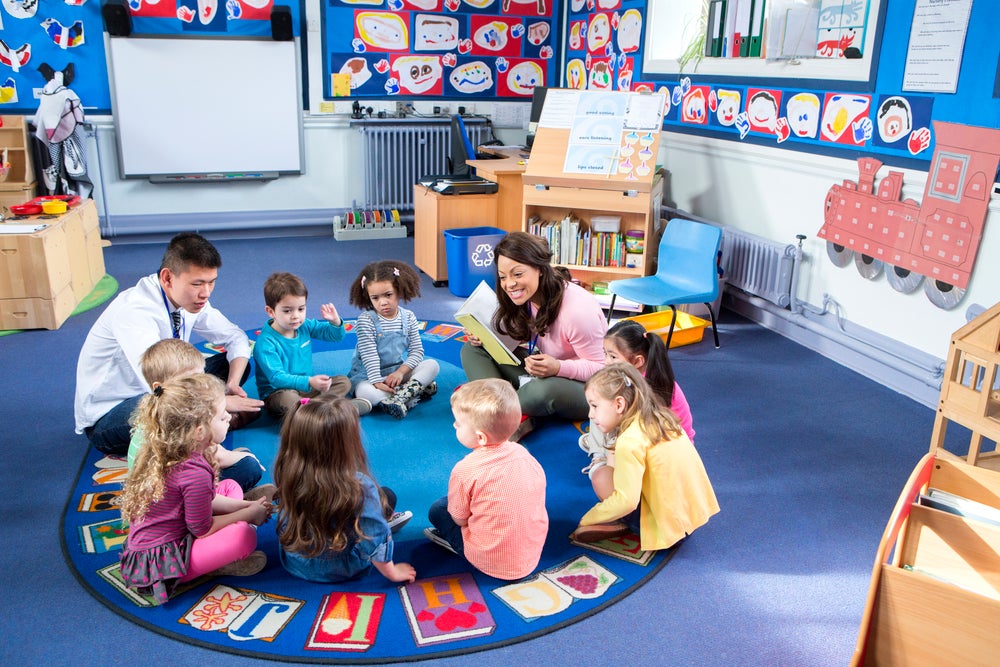
Your child’s first day of preschool will be here before you know it. This preschool readiness checklist can help them prepare for the big day!
As you work with your child, remember that the Begin team is here to offer encouragement and support. Our learning products and parent resources are designed to help your little one thrive in preschool and beyond.
We’re excited to be a part of your family’s journey toward lifelong learning!
Jody has a Ph.D. in Developmental Science and more than a decade of experience in the children’s media and early learning space. View all posts